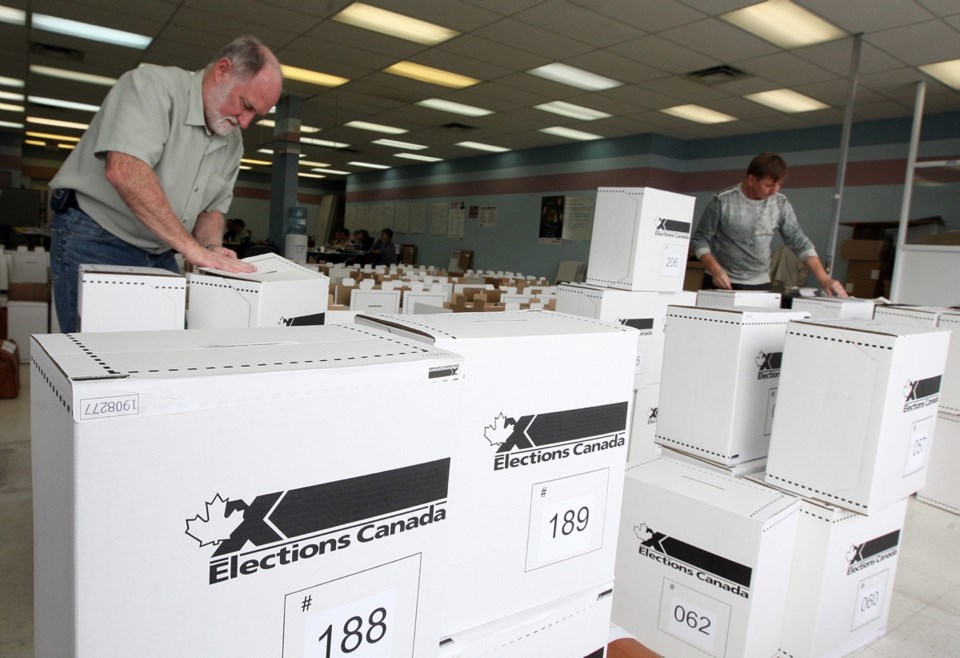The proposal to lower the voting age is a cynical and disappointing piece of political business, especially coming as it does from the Green Party.
There are certainly justifiable Green Party issues that, it is safe to assume, 16-year-olds would support with every best intention — sometimes in the absence of a clear understanding of the density and complexity of the matters at hand where nobody is right and nobody is wrong.
Yet both the Parti Québécois and the Scottish National Party are also advocating a 16-year-old vote. These are political parties both well aware of how young folks support their parties’ only partly revealed political agendas of secession, without necessarily having had the opportunity to fully examine all the consequences, positive and negative, of such a major move.
Sixteen-year-olds can vote in some countries, including Argentina, Brazil, Cuba, Ecuador, Nicaragua, Bosnia and Serbia, none of them bastions of stability and democracy.
Let’s not confuse the impressive youthful clarity and eloquence of recent student activism about gun control and school safety with any sense of readiness for involvement with the murky self-serving complexities of large-P politics.
The kids who have been speaking out are concerned with large-P party politics only in as much as party agendas represent a bewildering obstacle created by obtuse adults to what, in the kids’ minds, should be blindingly clear: that they have a right to be safe in school from murderers.
Thousands of kids were brought to the streets over their right to school safety, along with their disillusionment about the adults who, for reasons as ignoble as they are inexplicable, balk at doing what is right.
They are not demonstrating for the right to vote or even to become politicians, any more than children who are angry with their parents want to be parents. Not yet, anyway.
There is too much else of importance for kids to learn first. At least some of their education might eventually provide the essential tools that will enable them, as adults, to gain an informed and balanced understanding of what is being debated at the political level.
It is in their English classes that kids learn about the power of words and the influence of a well-crafted sentence, whether written or spoken.
Literature, for example, provides access to an anthology of our civilization’s experience through novels and drama that examine the human condition with all its decency, ambiguities, betrayals, successes and failures.
Science is about distinguishing empirical fact from unsubstantiated opinion, an important lesson for those who one day will be responsible doing just that as they make decisions about political leadership.
Geography, history and economics and history are inextricably linked. Kids need to grasp that the history of nations and peoples is formed by geography and economics, while politicians stand on the sideline hoping for credit — or at least avoiding blame — for events over which they actually had little control.
From a study of history, the kids also learn about the dangers of demagoguery unleashed on an inadequately educated and politically naïve population.
Music and art remind kids that an appreciation of beauty is what the human spirit needs in order for individuals to become fully human.
Participation in sports, even simple as playground games, teach integrity, deference to the agreed-upon rules, fairness and, most importantly, respect for those with whom or against whom one competes.
Not a bad curriculum that, in preparation for navigating the treacherous seas of big-time politics, especially as it deals with the importance of decency and respect for others, without which the game, any game, becomes pointless.
It’s a lot to learn in a short time, but education is what, at its best, plays a major part in preparing us to make important, perhaps some of the most important decisions we ever make, but for which we are not fully prepared at age 16.
Let’s hope voting age does not become the new political football. As my world-wise son pointed out to me: “Yes, the Green Party proposing that 16-year-olds vote is likely a cynical piece of self-serving politics, but then, the Conservative party would probably like to raise the voting age in Canada to 65.”
Geoff Johnson is a former superintendent of schools.



